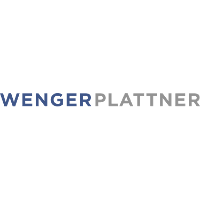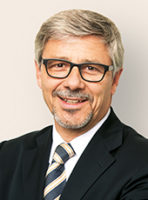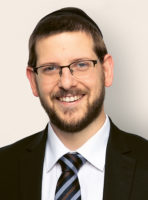Marketing, Manufacturing, Packaging & Labeling Advertising
Wenger Plattner / Switzerland
Marketing, manufacturing, packaging & labeling, advertising in Swiss Pharma – an overview. Prepared in association with Wenger Plattner, a leading law firm in Switzerland, this is an extract from The Pharma Legal Handbook: Switzerland, available to purchase here for GBP 99.
1. What is the authorization process for the marketing of new drugs, biologics, medical devices, over-the-counter medications, and other medicinal products?
Medicinal products
According to the Federal Act on Medicinal Products and Medical Devices (Therapeutic Products Act; TPA) medicinal products are considered as products of chemical or biological origin which are intended to have and are presented as having a medicinal effect on the human or animal organism. The distribution of medicinal products in Switzerland requires a market authorisation by the competent authority, irrespective of whether the medicinal product requires a prescription or can be sold over the counter. The competent authority for granting such marketing authorisation is the Swiss Agency for Therapeutical Products (Swissmedic). Swissmedic assesses whether the conditions for granting marketing authorisation, i.e. high quality, safety and efficacy of the medicinal product, are fulfilled. Companies or persons applying for a marketing authorisation must have their domicile, registered office or a branch office in Switzerland. Marketing authorisation is granted through the ordinary, the fast-track or the simplified procedure (see for details below). Moreover, certain medicinal products may be placed on the market following a notification to Swissmedic (e.g. homeopathic and anthroposophical products). Lastly, medicinal products for life-threatening or debilitating diseases may be granted a temporary marketing authorisation by way of a simplified procedure under certain circumstances.
Ordinary procedure
The ordinary procedure is initiated with the submission of the required information and documents to Swissmedic. The required documents are listed in the Ordinance on the Requirements for Marketing Authorisation of Medicinal Products and relating guidelines. In particular, Swissmedic provides a “Directory Overview of documents to be submitted”. In correspondence with the conditions for granting marketing authorisation, the complete documentation must prove the high quality, safety and efficacy of the medicinal product. Swissmedic requires using standard forms and the common technical document format (CTD) of the International Conference on Harmonisation for the application. In the interest of an efficient processing, Swissmedic recommends submitting data electronically.
The ordinary procedure takes at least one year. Swissmedic issued a guideline, in which it describes the timetable for authorisation procedures and the time limits targeted by Swissmedic in connection with submitted authorisation applications. For the ordinary procedure such targeted time limits are 30 days for the formal control, 120 days for the first evaluation phase and establishment of the list of questions, 90 days for the second evaluation process and preliminary decision and 90 days for the decision. These time limits are only considered as guidelines. If Swissmedic requires further information or documents the authorisation process can be prolonged.
Fast-track procedures
Upon request of the applicant, a fast-track procedure is available provided that the following conditions are cumulatively met: (i) the medicinal product promises prevention against, or treatment for, a severe, disabling or life-threatening disease; (ii) treatment using currently authorised medicinal products is either unavailable or unsatisfactory and (iii) the new medicinal product is expected to be of high therapeutic value. Application for a fast-track procedure must be made at least three months before the application for the marketing authorisation in order to allow Swissmedic to approve the procedure and to plan resources in advance. This procedure enables to obtain marketing authorisation within four to five months after the submission of the application for the marketing authorisation.
Similar to the fast-track procedure, Swissmedic offers a procedure with prior notification. This procedure is available upon request of the applicant and for medicinal products containing a new active substance, medicinal products with a known active substance that cannot be authorised via the simplified procedure or for an additional indication. It enables to obtain marketing authorisation within a timeframe that is 20% shorter than the ordinary procedure. However, the applicant must accept a substantive increase of the fees.
Simplified procedure
A simplified procedure is available for certain categories of medicinal products such as medicinal products with active substances that have already been authorised, medicinal products from a country with an equivalent marketing authorisation system and complimentary medicines. The procedure is governed by the Ordinance on the Simplified Marketing Authorisation of Medicinal Products and Authorisation by Way of Notification and the corresponding guidelines of Swissmedic.
Medical Devices
The distribution of medical device, including diagnostics, in Switzerland requires the respective manufacturer or importer to complete the applicable conformity assessment procedure. This also applies to medical devices that are provided for free, rented or used directly on patients. Mandatory notification obligations apply for manufacturers and importers from a non-treaty country (Switzerland has concluded treaties with EU Member States, EFTA States and Turkey) and for devitalised human tissue.
2. What is the authorization process for the marketing of generic versions of these products?
Generic versions of medicinal products require a separate and independent market authorisation as the market authorisation is personal and refers to a specific product. For the marketing authorisation of generic products, the simplified authorisation procedure is available. The application may refer to the pharmacological, toxicological and clinical tests of one or more reference products that are currently or previously authorised by Swissmedic provided that the applicant for the original medicinal product issues a written permission or the protection period of the original product has expired. This protection period is typically granted for the documents relating to an original medicinal product containing at least one new active substance and lasts 10 years. It must be distinguished from the protection derived from a patent.
3. What are the typical fees for marketing approval?
The fees for marketing approval depend on the applicable authorisation procedure and are governed by the Ordinance on Fees levied by the Swiss Agency for Therapeutic Products. In general, the following fees apply:
- Fees for authorisation of medicinal products with a new active substance: CHF 80’000 for the ordinary authorisation procedure or CHF 120’000 (plus CHF 5’000 for the request) if the fast-track authorisation procedure is used.
- Fees for authorisation of medicinal products with an existing and authorised active substance: CHF 15’000-30’000 depending on whether the product is with or without innovation.
- Fees for renewing an existing authorisation: CHF 500.
4. What is the period of authorization and the renewal process?
The first marketing authorisation is valid for a period of five years and can be renewed if the conditions for authorisation are still fulfilled. Applications for renewal of authorisation can be submitted at earliest one year and no later than six months before the authorisation expires. The renewed authorisation is generally valid for an unlimited time period. However, Swissmedic may limit the validity on a case-by-case basis. Moreover, Swissmedic may review the authorisation at any time and adapt to changing circumstances or revoke the authorisation.
5. What are the requirements, if any, for post-approval pharmacovigilance?
Holders of marketing authorisation must establish a pharmacovigilance system and have various notification and reporting obligations to Swissmedic. In particular, holders of marketing authorisation for a medicinal product with a new active substance must submit a periodic safety update report in the following four years after the authorisation.
With regard to medical devices, a company distributing medical devices in Switzerland must introduce and maintain a post-market surveillance system for the collection and analysis of the experiences with the medical devices.
6. Are foreign marketing authorizations recognized?
There is no automatic recognition of foreign marketing authorisations. If a medicinal product has already been authorised in a country with a comparable control system for medicinal products, Swissmedic will, upon request of the applicant, take into account the results of the assessments performed by the foreign authority during the authorisation procedure. The following countries are recognised by Swissmedic as having comparable control systems for medicinal products: Australia, EU, EEA and EFTA Member States, Japan, Canada, New Zealand, Singapore, USA.
7. Are parallel imports of medicines or devices allowed?
Parallel imports of medicinal products or medical devices into Switzerland cannot be restricted under trademark law as for such parallel imports the principle of international exhaustion applies. With regard to patent law, the principle of regional exhaustion applies in Switzerland, i.e. a product placed in an EEA state by the patent owner can be imported into Switzerland from the EEA without consent of the patent owner. However, for medicines the principle of national exhaustion still applies, if the price of the concerned medicinal product is determined by public authorities in Switzerland or the country of origin. In this case, the consent of the patent owner is required for the parallel import of the product into Switzerland.
Parallel imports of medicinal products must obtain a marketing authorisation, for which the simplified procedure is available. Swissmedic does not consider possible patent claims in the authorisation procedure. Patent owners have to submit such claims to the civil courts.
8. What are the restrictions on marketing practices such as gifts, sponsorships, consultancy agreements, travel and entertainment, or other incentives for healthcare organizations and individual medical practitioners?
The TPA has been revised with regard to incentives for healthcare organisations and individual medical practitioners and the new provisions entered into force on 1 January 2020. Together with the revised TPA the Ordinance on Integrity and Transparency in the Context of Therapeutic Products entered into force governing financial incentives in connection with medicinal products in detail.
As under the previous law, it is prohibited to offer, request, grant or accept undue financial benefits in connection with prescription-only medicinal products. However, the following benefits are not considered as undue financial benefits and thus, as an exception, are permissible:
- Benefits of modest value and related to the medical practice. According to the Ordinance, a benefit is considered to be of modest value if the total value does not exceed CHF 300 per year and per person.
- Support contributions for research, further education and training, provided that certain criteria are met. The relevant criteria can be found in the Ordinance.
- Compensation for equivalent considerations, in particular for such services in connection with orders and deliveries of therapeutic products. Price discounts or rebates granted on the purchase of therapeutic products provided that they have no influence on the choice of treatment.
Moreover, healthcare service providers must pass on price discounts and refunds granted to them to the patient and/or insurer. Lastly, criminal provisions with regard to bribery as well as the Federal Act against Unfair Competition may also apply.
9. How is the manufacturing of medicines and devices regulated and by which agencies?
The manufacturing of medicinal products requires an establishment licence. The requirements for such a licence are set out in detail in the Ordinance on Authorisations in the Field of Medicinal Products. Swissmedic issues this licence if the requirements are fulfilled and on the basis of a successful inspection. The establishment licence is limited to a specific field of activity, i.e. a licence for manufacturing does not automatically cover activities of import, export, trade etc. For such activities an additional authorisation is required.
With regard to medical devices no licences are required for the manufacturing of such products. Switzerland follows the EU system of compliance assessment and certification based on bilateral agreements (see for the bilateral agreements question 1).
10. Are local manufacturing requirements compatible with Good Manufacturing Practices (GMPs) as defined by the U.S. Food & Drug Administration and/or the European Medicines Agency?
Establishment licence holders, who manufacture medicinal products, must comply with the rules of Good Manufacturing Practices (GMP). Switzerland follows the EU GMP as set out in Directive 2003/94/EC of 8 October 2003 laying down the principles and guidelines of Good Manufacturing Practice in respect of medicinal products for human use and investigational medicinal products for human use.
11. What is the inspection regime for manufacturing facilities?
Swissmedic inspects the manufacturing facilities on a periodically basis in order to review the fulfilment of all requirements for retaining the licence. The inspection interval depends on the type of activity. In addition, Swissmedic may order inspections at any time.
12. Are manufacturing facilities open for inspection by foreign inspectors or third-party inspectors as authorized by the FDA/EMA?
Upon prior notification to Swissmedic, foreign authorities are entitled to inspect establishments in Switzerland, which operate in the therapeutic sector, provided that:
- the inspection has the sole purpose of verifying compliance with the regulations on therapeutic products;
- the result of the inspection is used solely in administrative proceedings in connection with the enforcement of regulations on therapeutic products;
- the concerned establishment consents to the inspection; and
- the foreign authority informs Swissmedic of the result by providing it with the inspection report in an official Swiss language or in English. A copy of the report shall be delivered to Swissmedic within 10 days after issuing the report by the foreign authority.
The notification must be submitted to Swissmedic at latest 30 days prior to the planned beginning of the inspection. Swissmedic may accompany the foreign authority during the inspection.
13. What are the requirements for storage, packaging, and handling of medicines and devices and their constituent components?
The competence to regulate and monitor wholesale and retail trade is divided between the Federal Government and the Cantons. For wholesale trade the Federal Government follows the Good Distribution Practice (GDP) of the EU, which describes the minimum standard that a wholesale distributor must meet to ensure that the quality and integrity of medicines is maintained throughout the supply chain (this includes storage, packaging and handling). With regard to retail trade each canton is responsible to regulate the storage, packaging and handling of medicines.
14. What information must be included in medicine and device labeling?
The labelling of medicinal products is governed by the Ordinance on the Requirements for Marketing Authorisation of Medicinal Products and the corresponding guideline of Swissmedic. The following information must be included, amongst others, in the packaging of medicines intended for the patient:
- Name of the medicinal product, if necessary, stating the dosage and galenic form.
- Composition of the medicinal product.
- Marketing authorisation holder.
- Batch number.
- Essential medical instructions for using the product.
- Expiry date.
- Storage instructions.
- Marketing authorisation number.
- Child warning notice as well as note to read the package leaflet.
Swissmedic may grant exceptions for certain information, if, for technical reasons, it is not possible to include all the required information on the packaging. Such Exceptions are available for the information regarding the composition of the medicinal product, the marketing authorisation holder, the medical instructions, the storage instructions, the marketing authorisation number and the child warning notice.
For the labelling on packaging of medical devices, Swiss law refers to EU law, in particular to Directive 93/42/EEC concerning medical devices, which defines the minimum content required.
15. What additional information may be included in labeling and packaging?
In principle, information and texts on the packaging of medicinal products are restricted to the legally required information (see question 35). Other information, texts or illustrations are only permitted, if a direct connection with the use of the medicinal product can be established, the inclusion of such information is important for providing health information and the information is not misleading.
16. What items may not be included in labelling and packaging?
As stated in the previous question, information on packaging of medicinal products is, in principle, limited to the legally required information. Other information may be included under certain conditions. As a consequence, medicinal products advertising on the packaging is not permitted. Moreover, the appearance of a medicinal product should not lead to any trivialisation or confusion with a consumer product such as food or drink. Lastly, some specific information may not be included in labelling and packaging such as constituents that are not contained in the medicinal product.
17. What are the restrictions and requirements for the marketing and advertising of medicines and devices?
Promotion and advertising of medicinal products and medical devices is governed by the TPA, the Ordinance on the Advertisement of Medicinal Products as well as the Medical Devices Ordinance. In addition, the Federal Act against Unfair Competition applies as well.
In general, advertisement of medicinal products and medical devices must not:
- be misleading, inaccurate or unethical;
- incite an excessive, abusive or inappropriate use of medicinal products;
- refer to off-label use or products not authorised for marketing in Switzerland.
Advertising aimed at healthcare professional is allowed for any medicinal product authorised for marketing in Switzerland. Such advertisement has to be recognisable as advertisement and separated from editorial contributions. In addition, advertisement is only allowed for the authorised indications and use of the medicinal product. Advertising aimed at healthcare professionals is also allowed for any medical devices. Any misleading statements concerning the medical devices’ efficacy and performance are prohibited.
Advertising aimed at the general public is restricted with regard to both medicinal products and medical devices. Public advertising for medicinal products is only allowed for over-the-counter products. In contrast, no public advertising is allowed for:
- Prescription-only medicinal products.
- Medicinal products containing narcotic or psychotropic substances.
- Medicinal products that may not be used without the intervention of a doctor for the necessary diagnosis, prescription or treatment.
- Pharmaceuticals that are frequently misused or are likely to lead to addiction or dependence.
- Medicinal products with a recommended dosage of more than 0.5g of pure alcohol with regard to advertising in radio and television.
Public advertising for medical devices is prohibited for medical devices that:
- may be dispensed on medical prescription only;
- are placed on the market for exclusive use by professionals.
Advertising in print and electronic media as well as on radio, television and cinema have to be submitted to Swissmedic for approval prior to publication if the following two conditions are met:
- the medicinal product concerned belongs the group of analgesics, sleep-inducing medication, sedatives, laxatives, and anorectics (appetite suppressants);
- the medicinal product concerned has a potential for misuse or addiction according to the product information.
18. Where can medicines and devices be sold or delivered? Can medicines and devices be sold or delivered via post?
Medicinal products are differentiated between two categories of drugs: prescription-only and over-the-counter medicinal products. These two categories are further divided into four sub-categories (categories A, B, D and E). Swissmedic classifies the products during the authorisation process.
In principle, medicinal products can only be sold by a person or institution, which holds a license to dispense such products. Depending on the category of the concerned medicinal product, some professionals may dispense the product and some not. Pharmacists are allowed to dispense subscription-only medicinal products on doctor’s prescription. They may dispense such products without a doctor’s prescription, if they have direct contact with the person concerned and document the product dispensed and if either the medicinal product and indication has been designated by the Federal council or the case at hand is exceptional and the dispense can be justified. Over-the-counter medicinal products may be sold by druggists as well.
The LTP prohibits, in principle, mail order delivery of medicinal products. This applies to all form of orders, which are made from distance (i.e. e-mail, internet or in writing). However, the cantons my grant on an exceptional basis authorisations to operate a mail delivery service of medicinal products. In order to obtain such authorisation, the following conditions must be fulfilled:
- the applicant must own a cantonal retailing license;
- the applicant must have a quality assurance system in place, which ensures amongst others the identification of the patient, a check of adverse interactions with other medicinal products and proper advice to patients;
- the patient provides a doctor’s prescription for the concerned medicinal product;
- a sufficient medical supervision by a doctor is ensured.
The dispensing of medical devices is regulated according to their intended purpose and to the information provided by the first mover on the Swiss market. Hence, a mail delivery service for medical devices is not in principle prohibited. A prescription for medical devices is only necessary if the device concerned could endanger human health even when used correctly or it contains medicinal products for which a prescription is mandatory. Such medical devices may only be dispensed if the sales point can guarantee that professional advice is available, which limits the possibility to introduction of a mail service delivery.
19. What are the restrictions and requirements for electronic marketing and advertising via email, by Internet, social media, and other channels?
As described in question 17, certain restrictions apply with regard to advertising on radio, television and cinema. For advertising on the internet, Swissmedic has issued specific guidelines, which clarify certain aspects of such advertising (e.g. use of domain names, hyperlinks and sufficient distinction between promotional and informative aspects). Access to advertising for prescription-only medicinal products, which may only target healthcare professionals, must be limited using a password protection.
20. May medicines and devices be advertised or sold directly to consumers?
With regard to advertising, please refer to question 17. With regard to sale, please refer to question 18.
21. How is compliance monitored?
Swissmedic and the cantons are entrusted with the implementation of the TPA and monitor whether the manufacture, distribution, dispensing and presentation of medicines and devices are in accordance with the law. The specific monitoring competences of Swissmedic and the cantons are outlined in the TPA. Monitoring is carried out by periodic inspections of the authorisation holders and notification obligations as well as notification rights.
22. What are the potential penalties for noncompliance?
In general, Swissmedic and the competent cantonal authorities can take all administrative measures necessary to enforce the TPA. Administrative measures of the competent authorities are subject to the principles of proportionality and public interest. The TPA lists possible measures. In particular, the competent authorities are allowed to:
- Raise objections and set an appropriate time period for restoring the state of law.
- Suspend or revoke licences and marketing authorisations.
- Close down establishments.
- Prohibit the distribution, dispensing, import, export and foreign trade from Switzerland of therapeutic products, order their immediate recall from the market, or order the publication of recommendations of conduct to prevent damage.
Moreover, the competent authorities may also impose criminal sanctions, i.e. custodial sentence up to three years or fines up to CHF 50’000.





























































